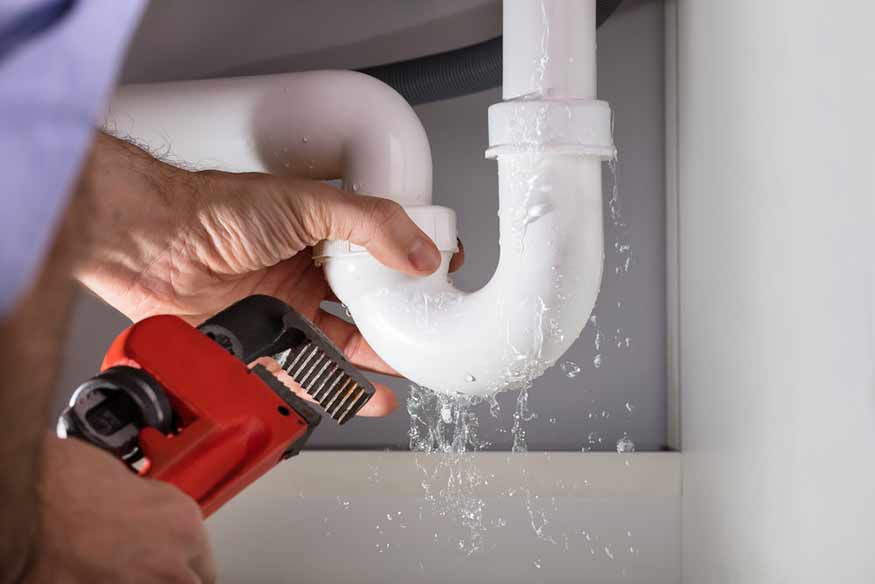
Leaks from plumbing pipes are among the most common and easily devastating causes of property damage for homeowners in the United States. In a year, around 1 trillion gallons of clean water waste through leaks in homes’ plumbing systems.
These leaks can happen anywhere in a home, says Vesta Property Management, and the average cost of fixing the damage is between $1,240 and $5,342. In many cases, the insurance claim to repair the damage can go as high as $11,605.
What causes water damage in most homes?
Water damage in the home can happen as a result of natural or artificial causes. Natural events that may result in water damage include basement flooding from heavy rainfall or burst pipe emergencies due to extremely cold weather. But you can avoid these issues.
Most water damage that happens in homes is preventable; caused by homeowners’ negligence or ignorance. For instance, you can prevent water damage from clogged gutters, leaky appliances, blocked drains, and leaking water pipes.
If your home suffers from persistent leaky pipes or you think one of your water pipes might leak, this article will help you. Here, we will discuss the various steps you can take to keep your pipes from leaking, thereby preventing water damage in your home.
How to prevent leaky pipes
Most leaks start as a result of processes in the plumbing that homeowners do not know. But instead of waiting for problems to happen before you fix them, these six steps let you catch leaks before they happen. Following them will put you in control of your home’s plumbing.
Check your home’s water pressure
Excessively high water pressure is a common cause of leaks in plumbing pipes. Many homeowners only think they have water pressure issues when the pressure is low. But high water pressure is more damaging to your plumbing than low pressure. The force of water flowing through the piping (called a water hammer) can easily damage pipes and connections. You can prevent this problem by monitoring your home’s water pressure. Normal water pressure for the house is between 30-50 PSI (pounds per square inch). It should never go above 60 PSI.
Tighten all plumbing fitting
Preventing pipe leaks can be as simple as tightening the fittings in the plumbing. Every joint in your plumbing – connections between pipes and pipes or between pipes and fixtures – is a potential site for leaks. For instance, a common place where leaks happen is under the kitchen sink. To prevent leaks in such areas, periodically inspect them for moisture, damage, or signs of aging.
Ensure joints are correctly sealed
This problem results when plumbing jobs do not follow the proper standard. If there is even the tiniest gap in a sealed joint, water will find its way through that gap. The leak may start as an occasional drip. But over time, it will become a trickle. To prevent leaks from incorrectly sealed connections, dismantle the connection, apply the plumber’s tape or grease (as required), and then reassemble the joint and gasket properly.
Prevent leaks caused by hard water
Water is described as “hard” when its mineral content is high enough that it can damage pipes. As hard water flows through the plumbing, it deposits some of its mineral contents inside the pipes. Over time, this narrows the diameter of the pipes; narrowed pipes cause high water pressure. Mineral deposits inside pipes also block the pipes and make them leak. To solve this problem, install a water softener in your home. That will remove unwanted minerals from the water before it enters your home.
Insulate water pipes
If you live where it gets very cold in winter, your water pipes will be more likely to freeze. When water pipes freeze, the water inside them can expand to a point where the pipe ruptures. But this damage is not visible until after the pipe has thawed and the water inside it starts to flow again. To keep water pipes from freezing, you can insulate them. That is particularly important for pipes exposed to cold air; pipes in the basement, garage, and under the sink.
Have your plumbing inspected on a schedule
Having a professional plumber thoroughly inspect your home’s plumbing at least once a year will save you tears and dollars. Even after you have taken the above steps, it is still possible for pipes to leak. A professional local plumber can spot issues that you will miss and help you take early action to prevent disaster. Regular plumbing inspections not only help you avert problems, but they also help to keep your plumbing up-to-date.
When it concerns water leaks in your home, “an ounce of prevention is worth more than a pound of cure.” The cost of taking preventative steps to stop leaks is almost nothing compared to the cost of fixing damage caused by leaks. If during the process of following any of the above steps, you think you need help, please do not hesitate to contact us.

